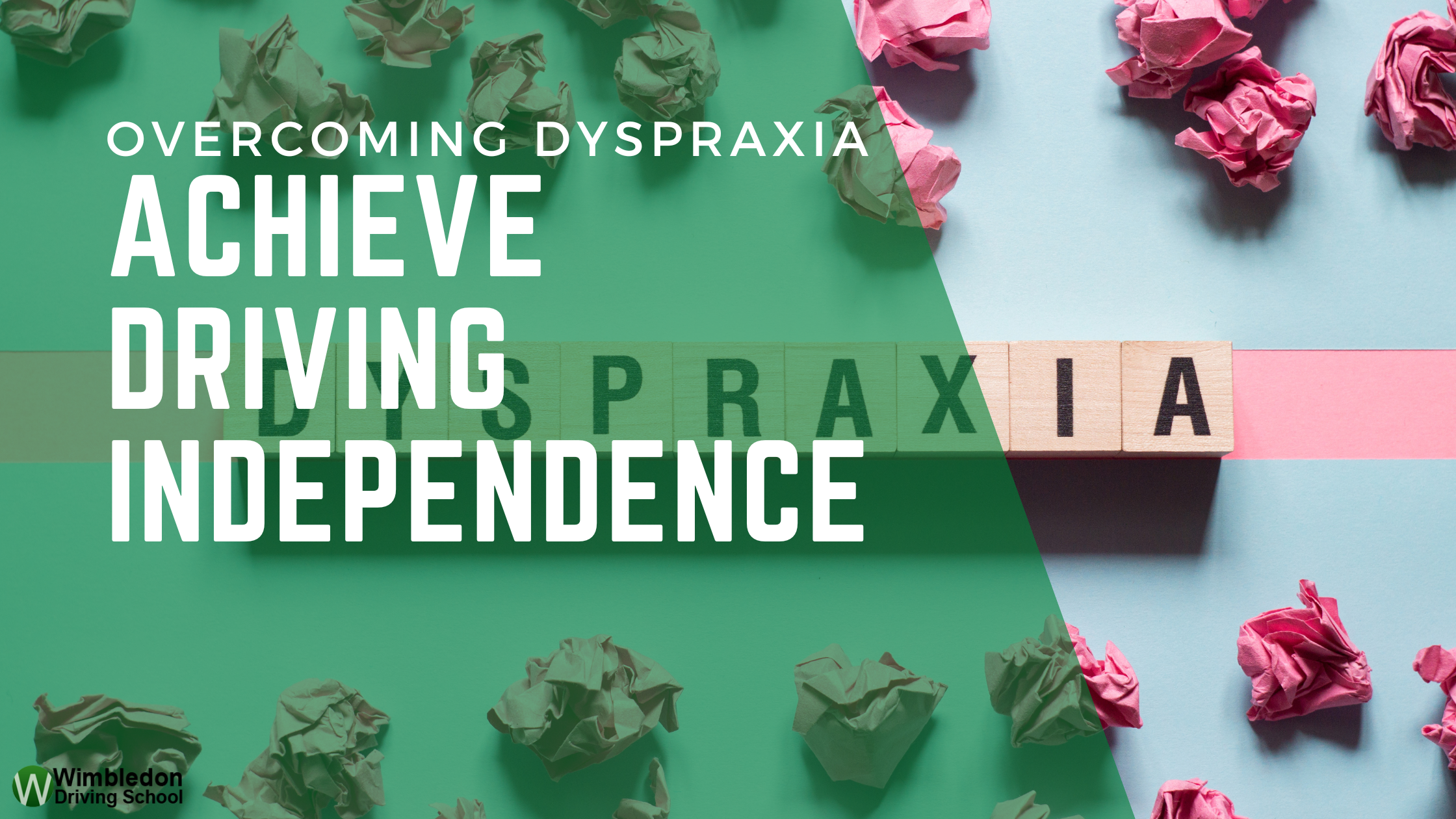Learning to drive is a huge milestone for many people. However, for those with dyspraxia, this journey can come with unique challenges. Dyspraxia is a developmental coordination disorder. affects motor skill development and coordination, which can impact various aspects of daily life, including driving. Understanding dyspraxia and its implications for driving is essential for those affected and their families. This blog will explore what dyspraxia means for your driving journey, the challenges faced, and strategies to enhance the learning experience.
What is Dyspraxia?
Dyspraxia is a neurological condition that affects an individual’s ability to plan and coordinate movements. It can impact fine and gross motor skills, making tasks like writing, tying shoelaces, or riding a bike challenging. In the context of driving, dyspraxia can manifest as difficulty with coordination, spatial awareness, and multi-tasking, which are all crucial skills for operating a vehicle safely.
Individuals with dyspraxia may also experience challenges in processing information quickly, which can affect their reaction times and decision-making while driving. As a result, understanding how dyspraxia impacts driving is crucial for learners and instructors alike.
Challenges Faced by Learners with Dyspraxia
Learning to drive involves mastering a variety of skills, and for those with dyspraxia, these skills may require extra time and practice. One of the primary challenges is coordination. The need to control the steering wheel while operating the pedals can be overwhelming for some learners. Individuals with dyspraxia may struggle with the physical demands of driving, including the precise movements required to change gears, steer accurately, and manage speed.
Another challenge is spatial awareness. Understanding the dimensions of the vehicle and its position on the road can be particularly difficult for learners with dyspraxia. This can lead to misjudging distances when parking or navigating tight spaces, increasing anxiety and uncertainty while driving. Moreover, multitasking can be a significant hurdle.
Driving requires simultaneous attention to the road, mirrors, and controls, all while processing information about traffic and road signs. For someone with dyspraxia, managing these multiple tasks at once can feel daunting, making the learning process more stressful.
Strategies for Success
While the challenges associated with dyspraxia and driving can seem overwhelming, there are several strategies that learners can use to help change and elevate their driving experience. First and foremost, finding a supportive driving instructor who understands dyspraxia is crucial. An instructor who is patient and willing to adapt their teaching methods can make a significant difference. They can provide tailored lessons that focus on building confidence and developing the necessary skills at a comfortable pace.
In addition to a supportive instructor, practice is essential. Regular driving practice with a trusted family member or friend can help reinforce the skills learned during lessons. It’s important to create a low-pressure environment where learners can feel comfortable making mistakes and asking questions. Gradually introducing new driving situations, such as busy roads or complex manoeuvres, can also help build confidence over time.
Other Ways to Help
Utilising visual aids and checklists can be beneficial for learners with dyspraxia. Creating a step-by-step guide for common tasks, such as parallel parking or checking mirrors, can serve as a useful reference during lessons. Visual reminders can help reinforce the necessary steps and make the learning process more manageable.
Additionally, incorporating technology can aid in the learning process. Apps and driving simulators can provide a safe space for learners to practise their skills without the pressure of being on the road. These tools can help reinforce concepts and techniques, allowing for repetition and familiarity before tackling real-life driving scenarios.
Understanding Emotional and Psychological Factors
Beyond the physical challenges, it’s essential to recognise the emotional and psychological aspects of learning to drive with dyspraxia. Anxiety and frustration can arise when progress seems slow, which can lead to feeling inadequate and let down. It’s important to learn to acknowledge these feelings and to speak to someone for support when needed. Encouragement from friends, family, and instructors can boost confidence and help maintain motivation throughout the learning journey.
Set yourself realistic goals. Breaking down the driving process into smaller, more manageable bitesize pieces. This can provide a sense of accomplishment and keep motivation high. Celebrating each success, no matter how small, reinforces progress and encourages continued effort.
The Importance of Adaptability
For individuals with dyspraxia, adaptability is key. Being open to trying different approaches and techniques can significantly improve the learning experience. Each learner is unique, and finding what works best for you may involve some trial and error. Flexibility in your approach to learning, as well as the willingness to communicate your needs to your instructor, will enhance the overall experience.
It’s also essential for driving instructors to remain adaptable and responsive to the needs of learners with dyspraxia. Understanding the condition and its implications can help instructors provide tailored support that accommodates the specific challenges faced by their students.
Want More Information About Dyspraxia and Driving?
Understanding dyspraxia and its implications for driving is crucial for both learners and instructors. While the journey may have its ups and downs, it is also filled with opportunities for growth and achievement. With the right support, strategies, and a willingness to adapt, individuals with dyspraxia can navigate the path to becoming confident, capable drivers.
At Wimbledon Driving School, we are dedicated to providing personalised support for all learners, including those with dyspraxia. Our experienced instructors understand the unique challenges faced by individuals with this condition and are committed to creating a supportive environment that fosters confidence and skill development. For more information about our services and how we can assist you on your driving journey, call our award-winning team on 020 3524 7968 or book your lessons online today.





